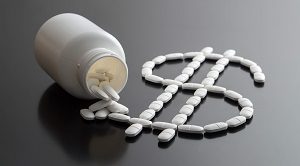Catch of the Week: Teva, A Pharmaceutical Company, Pays $54M to Settle Kickback Allegations

A recent settlement between the Department of Justice and Teva, a pharmaceutical company, show how creative, and how hard to identify, kickbacks allegedly paid to physicians can be. The company has agreed to pay $54M to resolve claims when it violated the False Claims Act by paying kickbacks to doctors to boost sales of two of their drugs.
Broadly speaking, the Anti-Kickback statute prohibits healthcare providers, including pharmaceutical companies from paying or receiving kickbacks, remuneration, or anything of value to induce patients to purchase or use a company’s drugs. The law seeks to prevent physicians proscribing medically unnecessary medications or recommending unneeded tests. The Anti-Kickback Statute is also intended to ensure that a physician’s medical judgment is not compromised by financial incentives and is solely based on the best interests of the patient.
The settlement resolves allegations surrounding two of the company’s drugs, Copaxone, a drug used to treat MS, and Azilect, one used to treat Parkinson’s disease. The alleged scheme centered around Teva’s payment of generous speaking fees to doctors, in return for those doctors overprescribing the company’s drugs. The suit alleged that the events were not educational and only existed as a means to funnel money to the doctors.
These alleged frauds were revealed in a False Claims Act law suit filed in 2013 by two whistleblowers, Charles Arnstein and Hossam Senousy. Both Arnstein and Senousy are former sales representatives at Teva.
The Act allows private persons to file suit against certain entities that commit fraud against the government. If their suits are successful whistleblowers are entitled to receive a monetary award of between 15 and 25 percent of the government’s recovery, if the government joins the lawsuit. If, as in this case, the government does not join the lawsuit, the whistleblowers are welcome to prosecute the alleged fraud themselves, and are rewarded with 25-30 percent of the recovery.
As these cases demonstrate, the vigilant and discerning eyes of doctors, nurses, administrative professionals, and pharmaceutical employees are essential in combating the increasing number of alleged frauds involving kickbacks, given that business relationships such as the ones between Teva and physicians are often opaque and require the perspective of insiders.
Read More:
- Anti-Kickback Statute and Stark Law
- False Claims Act
- Whistleblower FAQs
- Whistleblower Protection Laws
Tagged in: Anti-Kickback and Stark, Catch of the Week, FCA Federal, Whistleblower Case, Whistleblower Protection Laws,